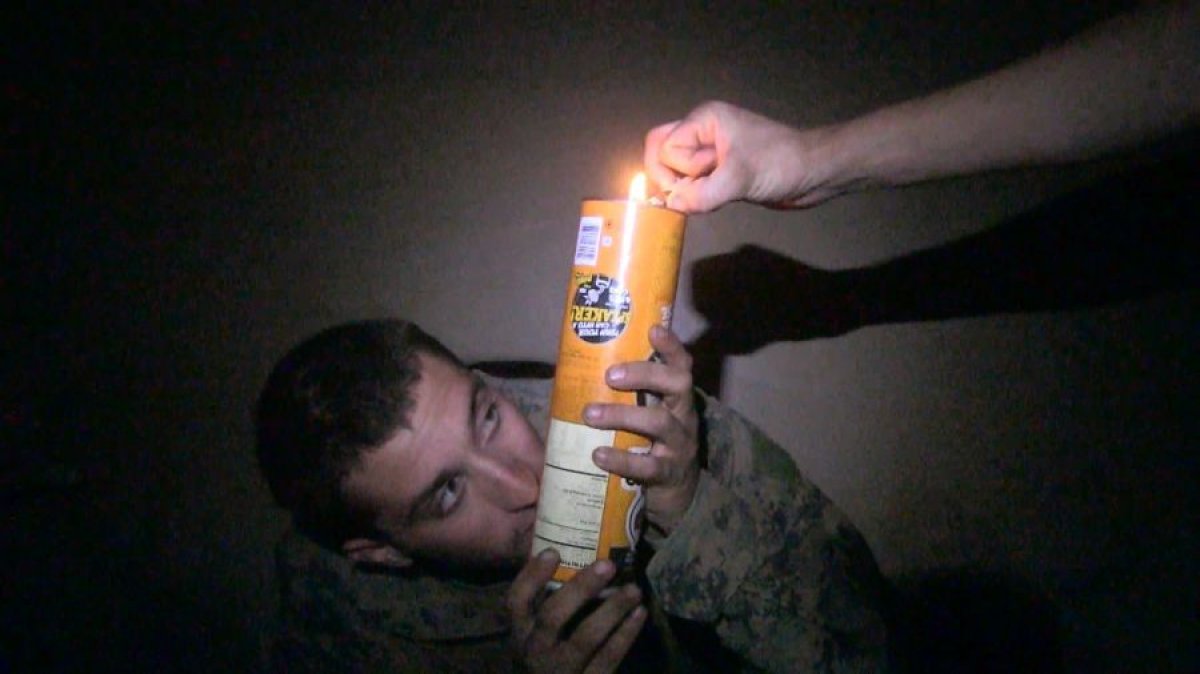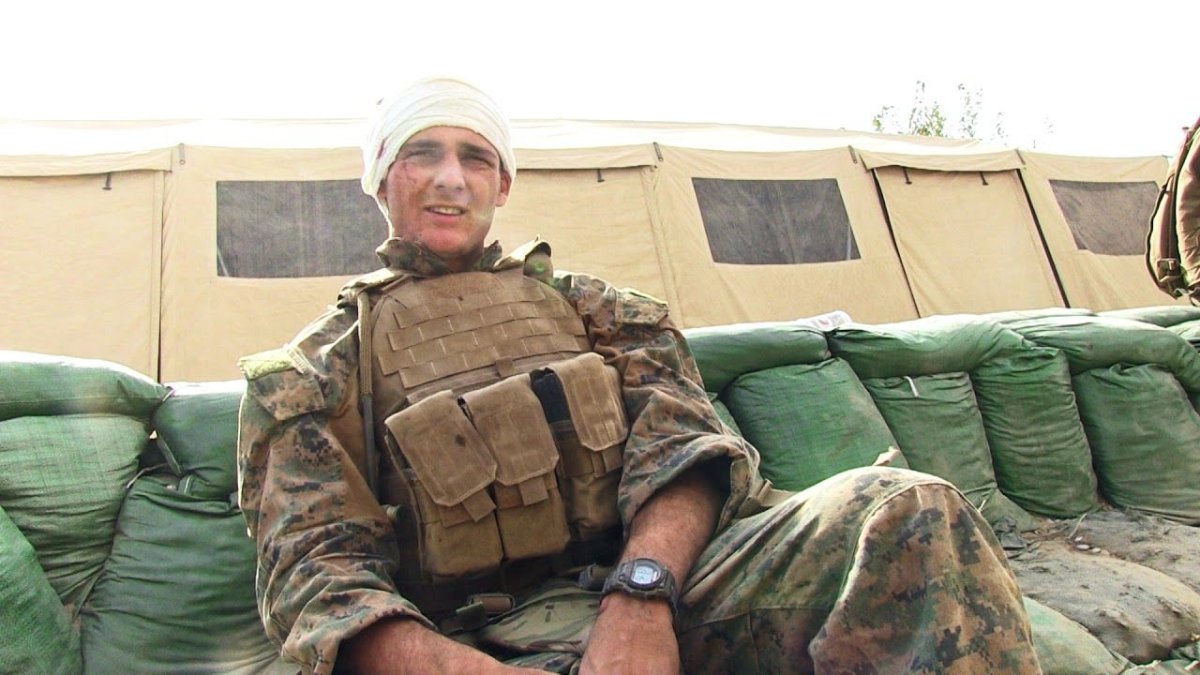America's longest war has become background noise for a generation, though certainly not for the Afghans or the American soldiers involved. Even those in charge of the war profess uncertainty as to how to proceed, let alone bring an end to the 17-year occupation—in passing the torch, now-retired General Stanley McChrystal told Secretary of State Mike Pompeo that his best suggestion was "to keep a limited number of forces there and just kind of muddle along." That uncertainty enables shoulder-shrugging. We understand the war only in the broadest possible strokes, which, paradoxically, creates a pat certainty—the comfort of a set narrative and the vanity of a birds-eye view.
New documentary Combat Obscura depicts the war beneath the narratives, capturing the soldier's experience with an immediacy that explodes political abstraction, placing it in a more humanist and honest context. Ignoring sterilized geopolitics, Combat Obscura reveals the war's base state: violence between individuals, with the barest notions of moral causation formulated by unseen powers thousands of miles away. Combat Obscura is a context corrective to war in Afghanistan news, but also an experiential document worthy of its most obvious inspiration—Full Metal Jacket—and its co-writer, the war correspondent Michael Herr.
"Our job was to shoot and edit videos for the U.S. Marine Corps," the text opening Combat Obscura reads. "We filmed what they wanted, but then we kept shooting."
As a Lance Corporal in the 1st Battalion, 6th Marine Regiment, Combat Obscura director Miles Lagoze captures astoundingly complex situations in the field—often simultaneously harrowing and tedious. But just as much of the documentary is about young men blowing off steam: They smoke a lot of marijuana, wrestle, joke around, do kid things. It's not really shocking—it's about what you'd expect of young men under the pressures they're under—but it upends the discipline, self-actualization and maturity on display in military recruitment commercials.

Shocking things are said throughout Combat Obscura: "That's the wrong building!" "I want to shoot someone." "God, I hope they just blow this dude apart. That would be funny as fuck." "I don't care right now about their customs and their courtesies."
But the quotes aren't the same as they appear in print. Written out, they're definitive and stark (particularly the expressed desire to kill), without any of the variable sentiment found in human expression. In Combat Obscura you can hear quavering voices, uncertainty, brashness, cruelty, puffed-up confidence, anger, good intentions, exhaustion.
Combat Obscura doesn't wave away the violence, but its intimacy allows us to see what nurtures the cruelty. Flown far from home, the marines of Combat Obscura are forced to make decisions against an unfamiliar cultural backdrop, sometimes resulting in callousness and violence. After killing a shopkeeper, the men linger around the bloodied corpse, some excited, some concerned. Afterward, they watch Austin Powers: The Spy Who Shagged Me on a laptop.
"You join the Marine Corps, you think the Marine Corps is a bunch of perfect people, who don't do anything bad, don't curse, they're just squared-away killers, you know?" one Marine says in a late-night interview. "And the Marine Corps is filled up with the most f**ked-up individuals I've ever met. Just like me, you know?"
In a bizarre inversion of the militarization of police in the United States, Combat Obscura also captures a military-as-police-force, following Marines tasked with catching suspects, conducting aggressive investigations of rural Afghan villagers and uploading fingerprints from field scanners—leading to one of the grimmest images in the documentary, as Marines do their best to scan the fingerprints of a mangled hand from a blown-apart body.
In one scene the unit disrupts a religious service to pull every man into a village square, where they huddle as the Marines search among them for high-value targets. It's a tense situation, with guns drawn as village life continues around them. Eventually, they let the men go.
"All those guys are free to go, every fucking one of them," one Marine says at the end of the day-long village standoff.
"Are they pissed?" another asks.
"I'd be pissed!" is the response.
It's self-evident to the soldiers on the ground how our foreign policy breeds resentment in the countries we occupy, furthering the cycle of violence, even while it remains a controversial assertion on the American political and media spectrum back home.
Most of Combat Obscura's 70-minute running time reflect the raw material of a Marine's time in Afghanistan, so the one piece of outside context offered, right in the middle of the documentary after footage of a chaotic firefight—a news segment hosted by CNN's Barbara Starr, with packaged video shot by Lagoze—shows the jarring contrast between two versions of the same reality.
In Combat Obscura, the engagement is protracted and profoundly upsetting to the Marine's involved. Under fire from presumptive Taliban members embedded in a ridgeline cave, one is struck by a sniper's bullet. "Holy shit," "Oh shit," "Where the f**k is air?" There is panicked rushing around, huddling in their compound, debating how to proceed, sharing how close the shrapnel whizzed by them in disbelief. We see young men doing their best to keep themselves and their friends safe.
"I got f**king shrapnel in my head. Just a booboo," one Marine videographer (who, earlier in the movie, describes himself as a "combat junkie") says after, his voice carrying both self-effacement and weariness. "I don't want any more combat. I think I'm good after this."

The CNN segment depicting the same firefight is vastly different—a highlight reel of efficiency, combat prowess and military cohesion. There's nothing inaccurate in it, but the differences between the nightly newsclip show and the more unfiltered depiction in Combat Obscura dramatizes just how easily combat is sanitized and slotted into a media gestalt.
"I filmed the war as a propaganda tool for the Marine Corps, showcasing different aspects of the military in a wholesome and sanitized manner that was approved by the Marines' public affairs apparatus," Lagoze explains in promotional material for the documentary. "Although it doesn't encapsulate the war experience in its entirety (no film can), I want to show people a side of the conflict and our troops that isn't normally seen, in a way they aren't accustomed to seeing it."
Mission accomplished. Combat Obscura is in theaters and available for streaming now.
Uncommon Knowledge
Newsweek is committed to challenging conventional wisdom and finding connections in the search for common ground.
Newsweek is committed to challenging conventional wisdom and finding connections in the search for common ground.
About the writer
To read how Newsweek uses AI as a newsroom tool, Click here.








